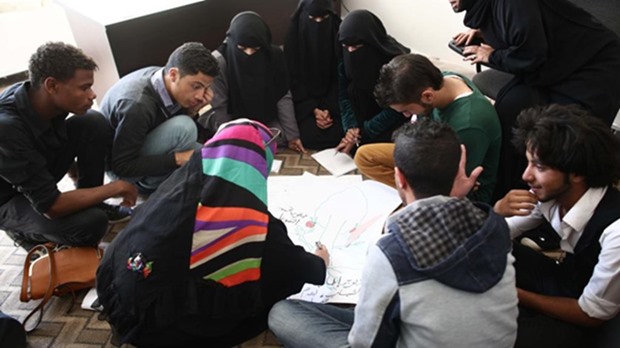Reach Out To Asia (Rota), in partnership with Care International and Silatech, has wrapped up a two-year initiative after providing opportunities for 2,100 young Yemenis.
Rota is a member of Qatar Foundation for Education, Science and Community Development (QF).
In addition to imparting training and entrepreneurship orientation for 1,100 youths, the project granted another 1,000 young Yemenis access to information and support services to assist entrepreneurship, enabling them to harness existing local resources.
The initiative was part of a $1.2mn project titled “Toward Better Economic Opportunities for Youth in Sana’a and Hajjah”.
The project was designed to offer viable alternatives to formal employment in a country disadvantaged by high unemployment and a growing population of young people.
It was also in line with QF’s mission of promoting productive change regionally and internationally.
Through training and mentorship, the Rota-funded project provided Yemeni youths with relevant business skills, training, entrepreneurship, orientation and linkages to youth-friendly financial services, ultimately allowing them to capitalise on their skills through self-employment.
Rota executive director Essa al-Mannai recalled that the project has had an important and positive impact on a country whose economy is extremely limited. “The intelligent design of this project met both the educational and employment needs of Yemen’s youth, and its innovative approach helped promote sustainable long-term development in the country.”
Rota’s partner in Yemen, Silatech, was founded in 2008 by QF chairperson HH Sheikha Moza bint Nasser. It promotes large-scale job creation, entrepreneurship, access to capital and markets, and encourages the participation and engagement of young people in economic and social development.
Silatech chief executive officer Dr Tarik M Yousef said the project has helped create an environment for youth entrepreneurship in Yemen through the facilitation and encouragement of knowledge sharing.
Many young people in Yemen have benefited from participation in the project, such as 24-year-old Elham Radman al-Qadasi, who lives in one of the country’s most marginalised communities.
Elham lives in a small rented house with her mother, whom she also supports due to her ill health.
The young Yemeni, who forewent her dream of studying at university due to her family’s difficult financial situation, said she was approached by project organisers to receive vocational training due to her economic and social background, and enrolled in hairdressing and beauty training.
She continued, “I was very excited to start the initiative in September 2014. I enjoyed both the training and my time with the other trainees. I was very happy when my business work plan was selected as one of the best. The project has fully supported me and provided me with a vocational toolkit to start my small business.”
The success of Elham’s plan has allowed her to work as a hairdresser and, over the last 16 months, she has served her community from her home. Not only has her business grown steadily since its inception, but Elham is also receiving fame in both her neighbourhood and throughout the surrounding areas.

A group of Yemeni youth engaged in an exercise during the training.
